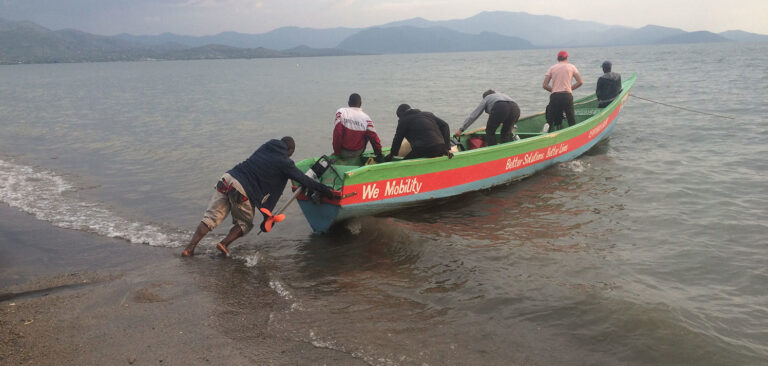In the Kenyan fishing town of Mbita, Dutch startup ASOBO is trialling a business model that involves renting electric outboard motors to fishermen for a monthly fee. The scheme covers not only the motor rental, but also training, maintenance and access to a solar-powered battery charging service.
The town sits of the shores of Lake Victoria, the second largest freshwater lake in the world, and pollution from gasoline- and diesel-powered vessels is a major concern. Around 50,000 small boats, mainly engaged in fishing, plie its waters, which are regularly polluted by fuel and lubricant leaks.
ASOBO was set up in 2019 with the goal of alleviating some of these environmental issues by providing local fishermen with a viable way to switch to electric power, through a leasing scheme using supplier Torqueedo’s Cruise 4.0 T motors, which have the equivalent output to a 9.9hp traditional outboard.
Importantly, the company says running costs for the fishermen are lower than with IC engines. The rental fee for the e-motors is 20-25% less than the monthly expense of running a gasoline-powered outboard. “Everywhere around the world, people like saving money, but in low-income countries like Kenya it is even more important,” says ASOBO’s co-founder, Laurens Friso.
The monthly fee depends on the boat, how far it travels, and the current price of gasoline. ASOBO says that there are other advantages too: the compact motors are ideally suited for propelling the locals’ long, thin wooden boats, and the 3.5kWh battery packs provide sufficient range for a day’s fishing. Additionally, the almost silent nature of EV running benefits the fishermen, both in terms of comfort and a reduction in the disturbance caused to fish.
The pilot project is proving successful and ASOBO hopes that it will be able to expand to other fishing communities in Kenya and beyond. “We think we’ll be able to supply up to 500 fishermen from Mbita soon,” Friso says. The company has a long-term plan to expand to other continents as well. “I hope that in a few years our business model will not just be working on Lake Victoria but in emerging markets all over the world, for example, in island-rich Southeast Asian countries like Indonesia and the Philippines.”



